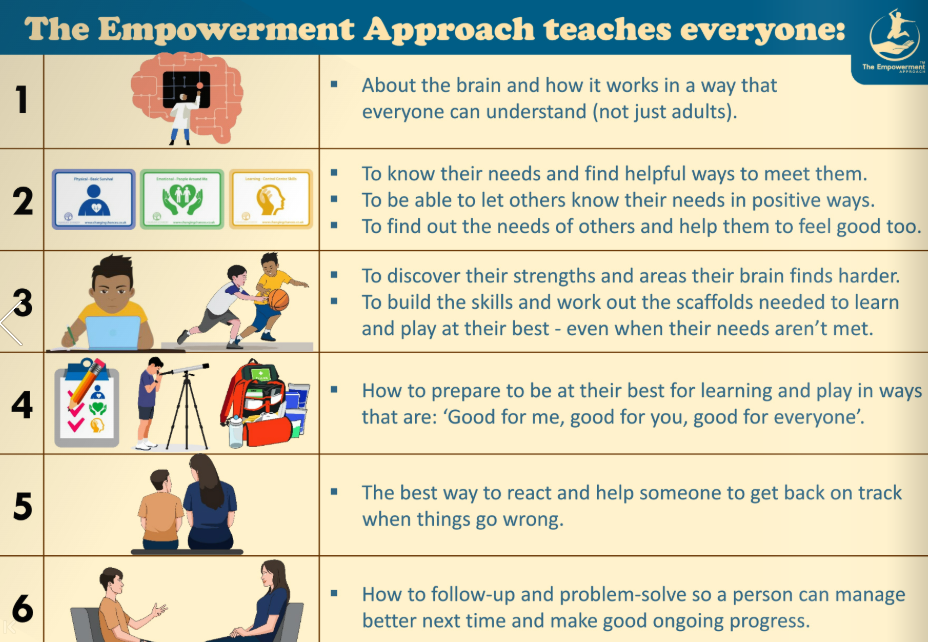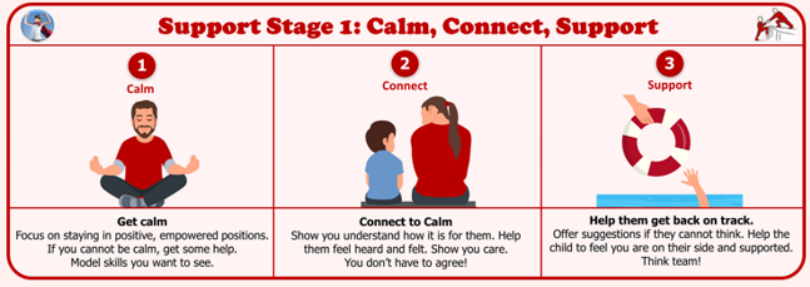Empowerment Approach
At Kempshott Junior School we are always looking to build upon and improve our practise in school. We have noticed a change in the needs of our children over the last few years, and we feel that there is an increased need to support children in helping them to understand themselves as individuals and develop greater learning and social skills to be used in and beyond the classroom. We believe that when children feel better they do better, which is why we have adopted the Empowerment Approach.
We will be actively teaching children about being ‘Brain Fit’ and the approach. As such, we have changed our approach to behaviour and have created a new policy. This will form an important change to what happens on a day-to-day basis for us as a school.

We will be sharing our new behaviour policy with you in the coming months, which we encourage you to take time to read. We understand this is quite a lengthy document. However, we are undergoing a significant shift in our approach to behaviour in school and want you to be aware of these changes. Kit Messenger, founder of the programme, will also run an online webinar for parents to explain more about the underlying philosophy and answer any questions.
In the coming weeks, we will share more information about specific aspects of the programme and some of the content which is being taught. This will be through newsletters and the website.
The Empowerment Approach teaches everyone:
- About how the brain works
- A way to help a child work out the unmet needs behind their difficulties and know ways to fill these needs in helpful ways
- How to help a child build the skills needed to manage well in learning and play – even when their needs are not being met
- How to help children prepare to be at their best for learning and play
- The best way to react and help someone get back on track when things go wrong
- How to follow-up and problem-solve with children so they manage better next time and make good progress over time
Through adult support, the children develop an understanding of their 5C needs and how it feels to have these met and unmet. We cannot have all our needs met all the time, and so we need to develop the skills to manage this.

Some children need more support than others to manage when they have unmet needs. But with this approach, a key adult will help them develop their awareness of this and plan a pathway to independence.
If children cannot meet the high expectations, they might need support to develop the skills to do this. We know that children need to connect to calm before they can reflect and repair.

Good for me, Good for you, Good for everyone
As part of the approach, we are using the phrase 'Good for me, Good for you, Good for Everyone.' This helps us to think about our behaviour and how it impacts on others. It helps us to 'catch the good' and celebrate when children are showing pro-social behaviour. It also helps us to support children when they are dysregulated or finding something hard as it considers the impact of their actions for others around them.


